Abstract
We review dielectrophoretic forces on cells and colloidal particles, emphasizing their use for manipulating and characterizing the electrical properties of suspended particles. Compared with dielectric spectroscopy, these methods offer a measure of independence from electrode artifacts and mixture theory. On the assumption that the particles can be modeled as uniform dielectric objects with effective dielectric properties, a simple theory can be developed for the frequency variation in the field-induced forces. For particles exhibiting counterion polarization, dielectrophoretic forces differ considerably from predictions of this theory at low frequencies, apparently because of double layer phenomena.
Full text
PDF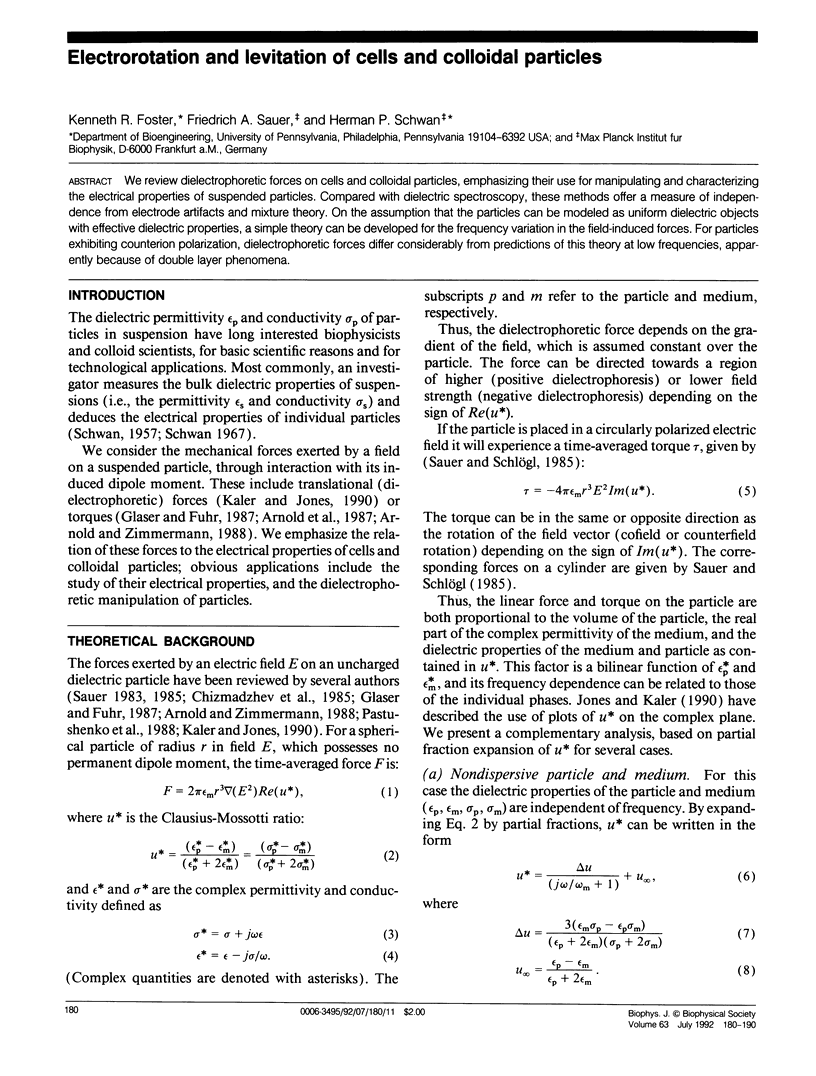
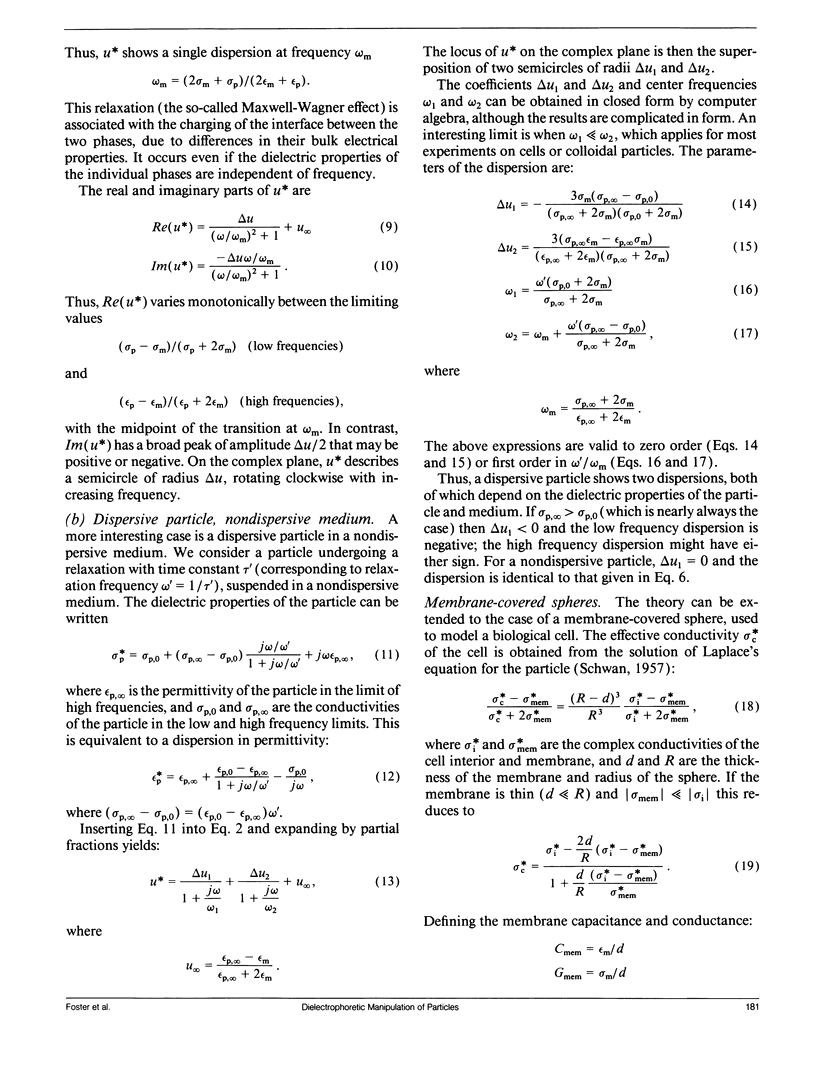
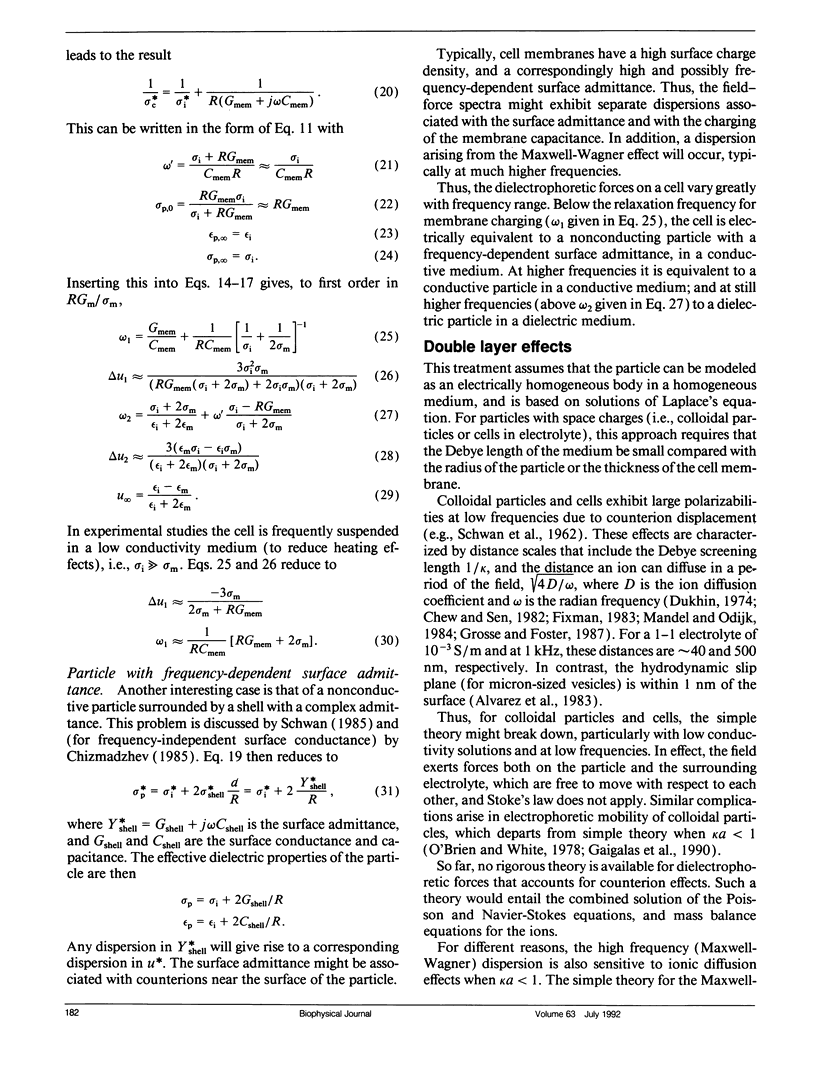
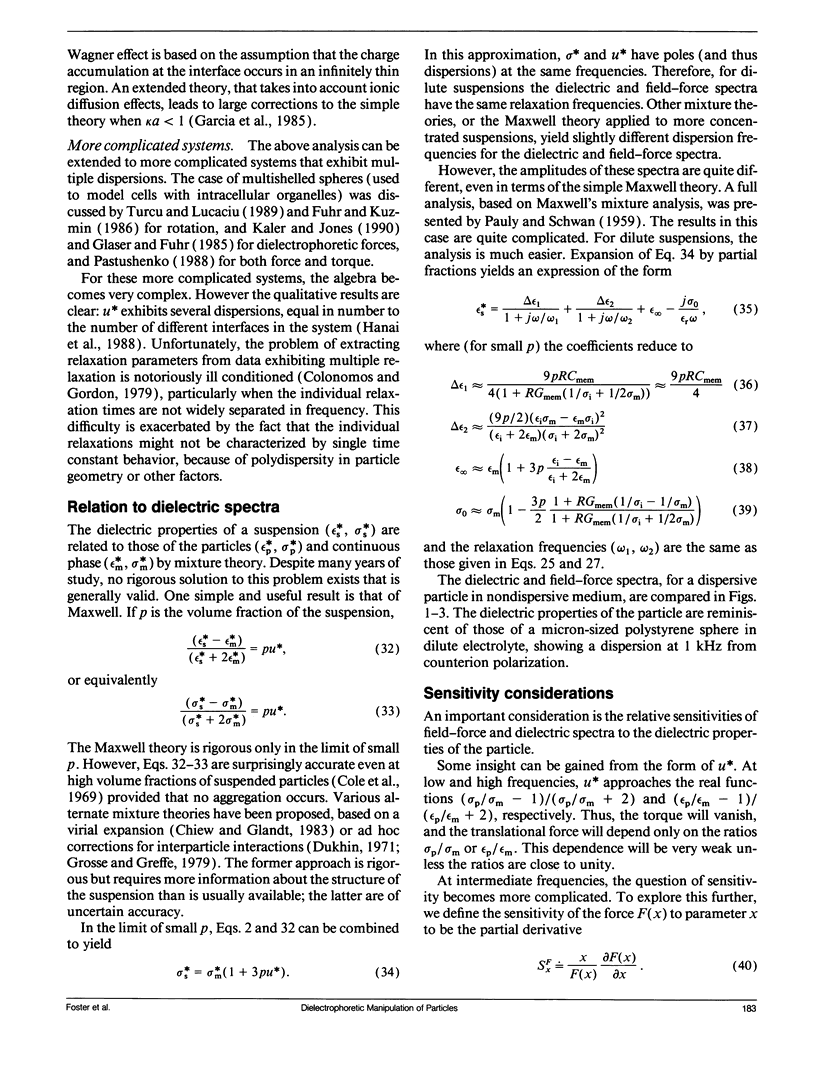
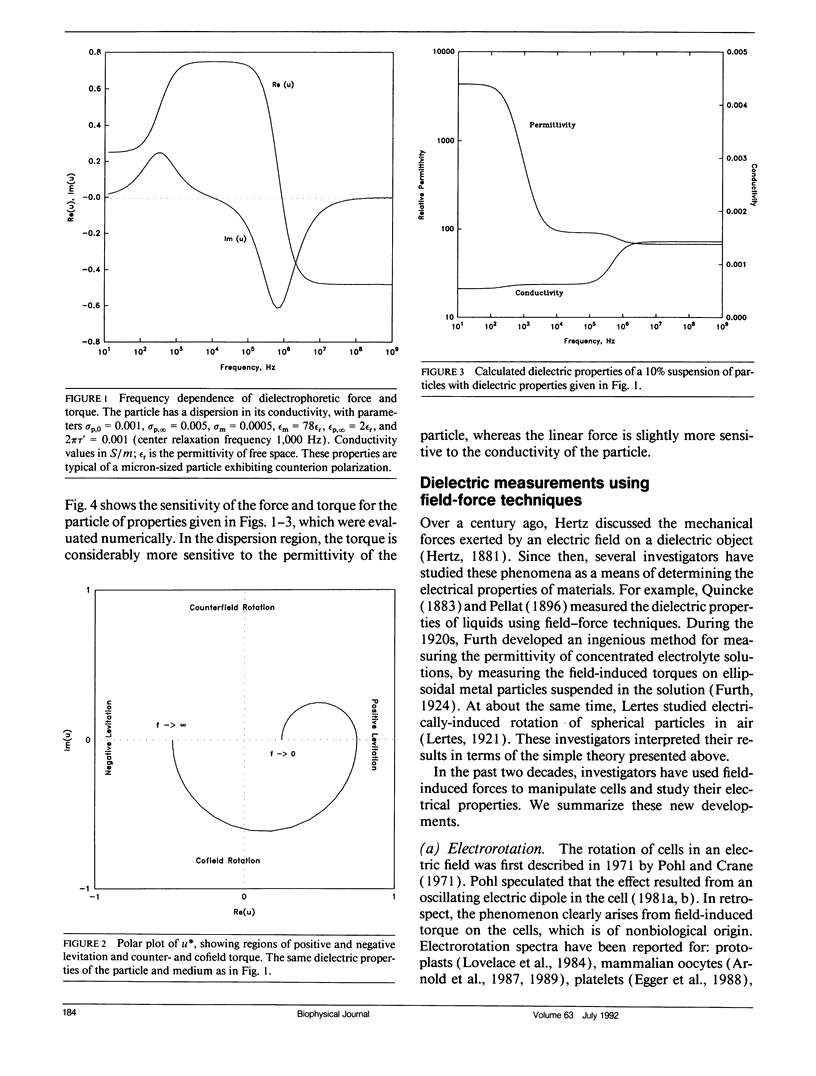
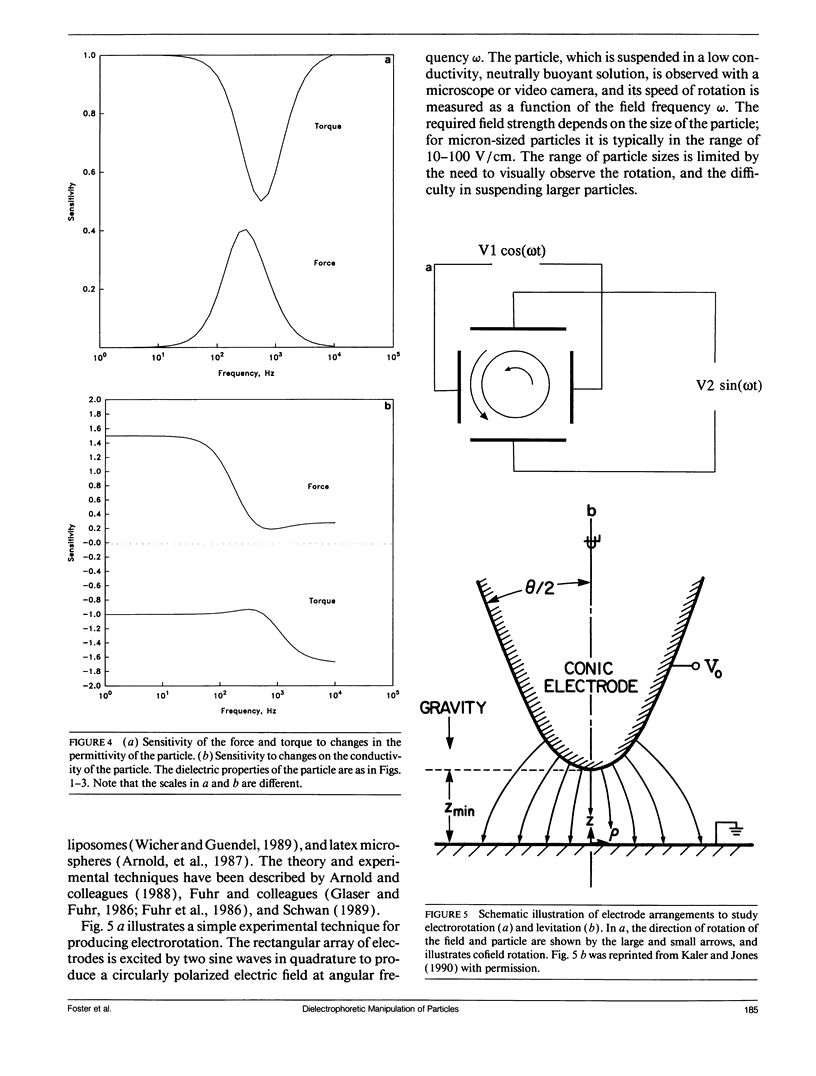
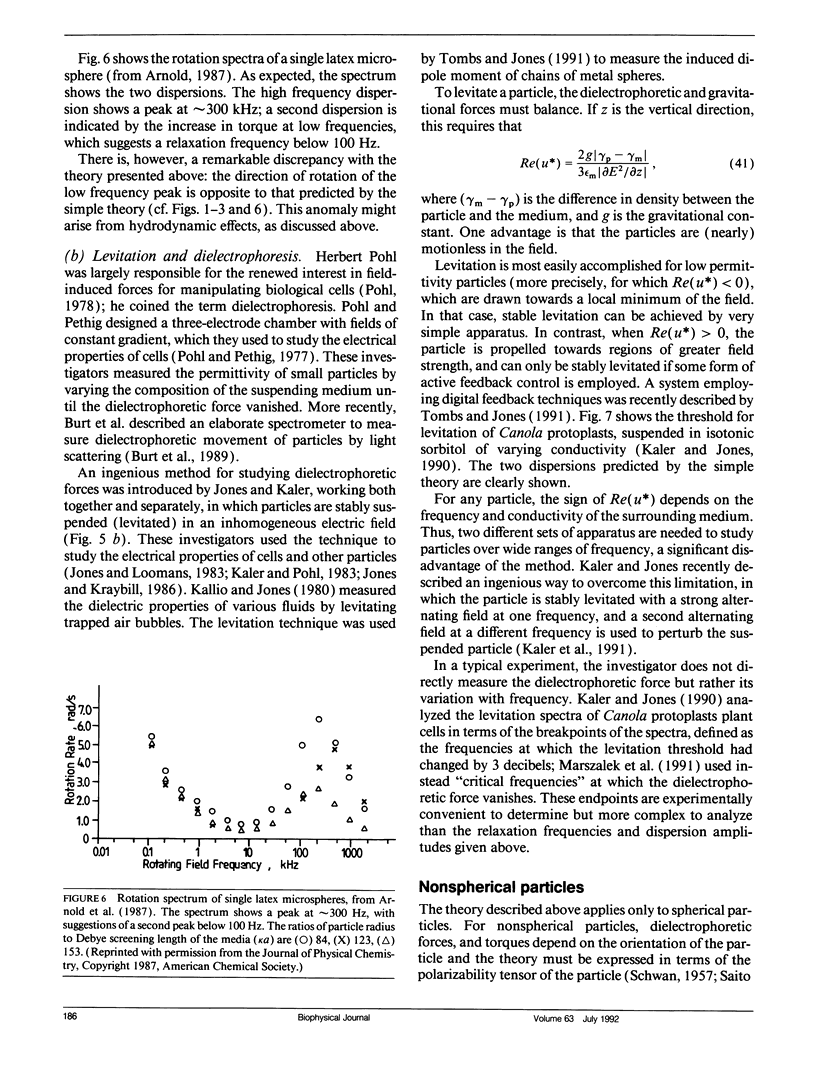
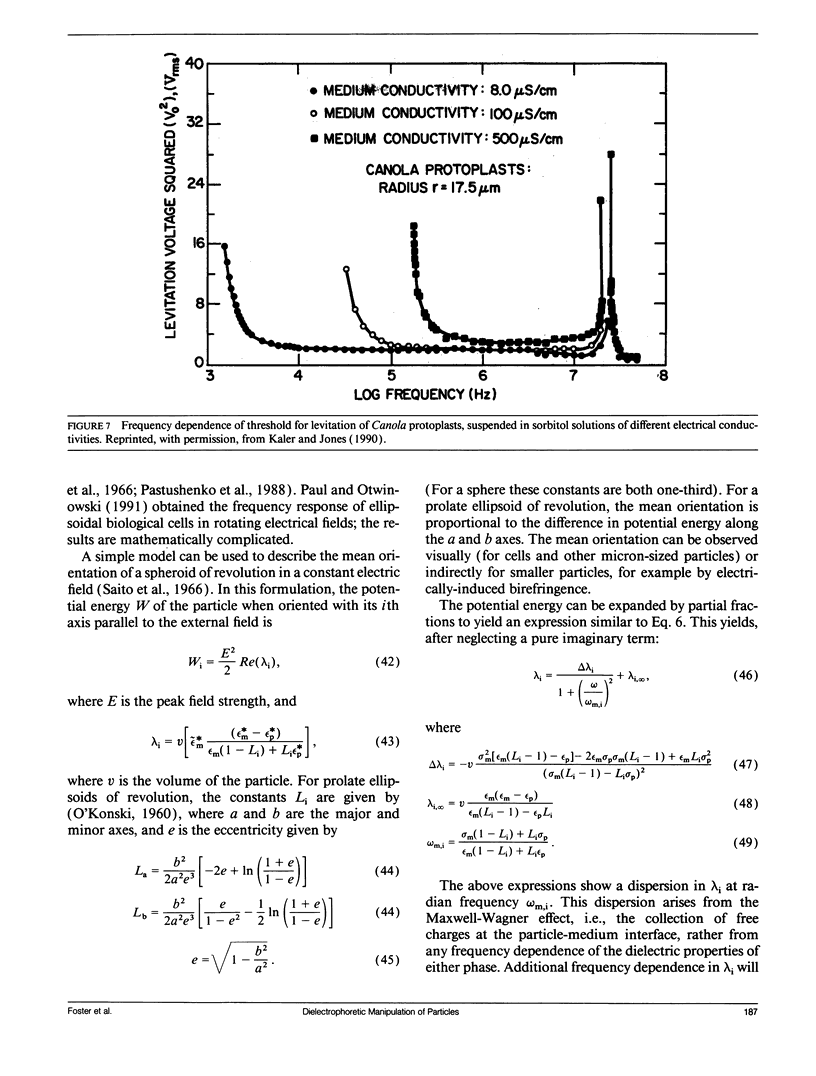
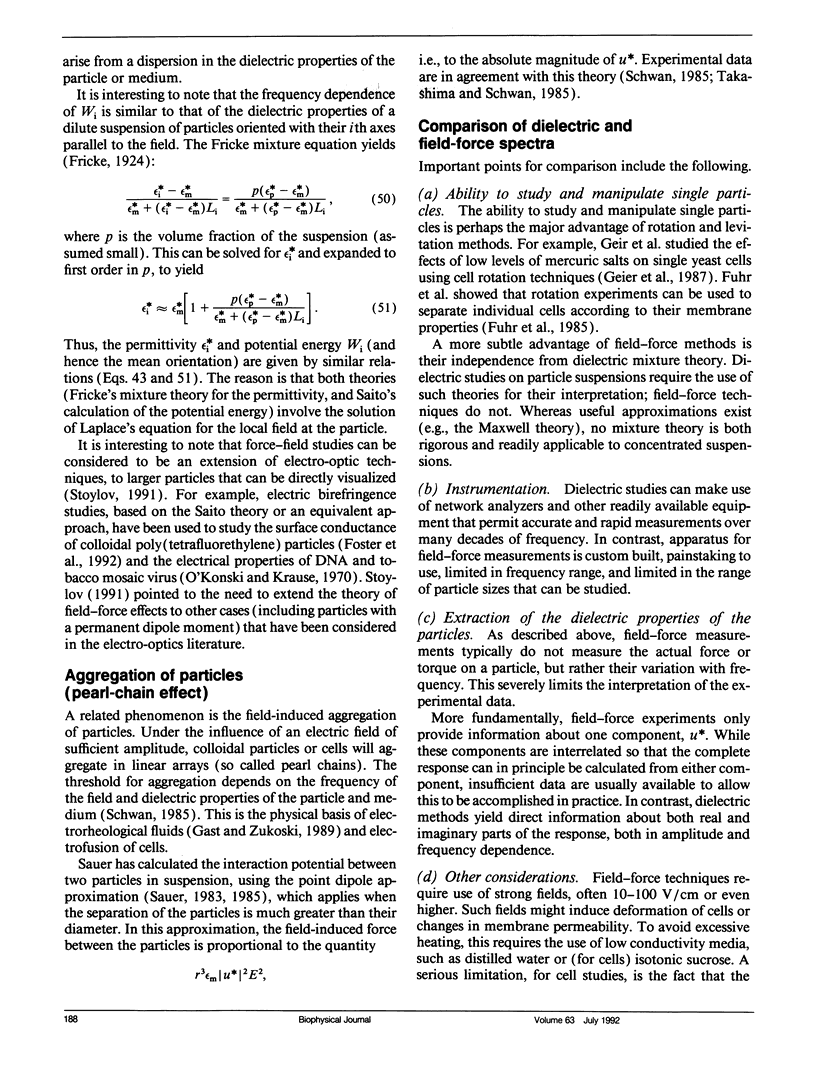
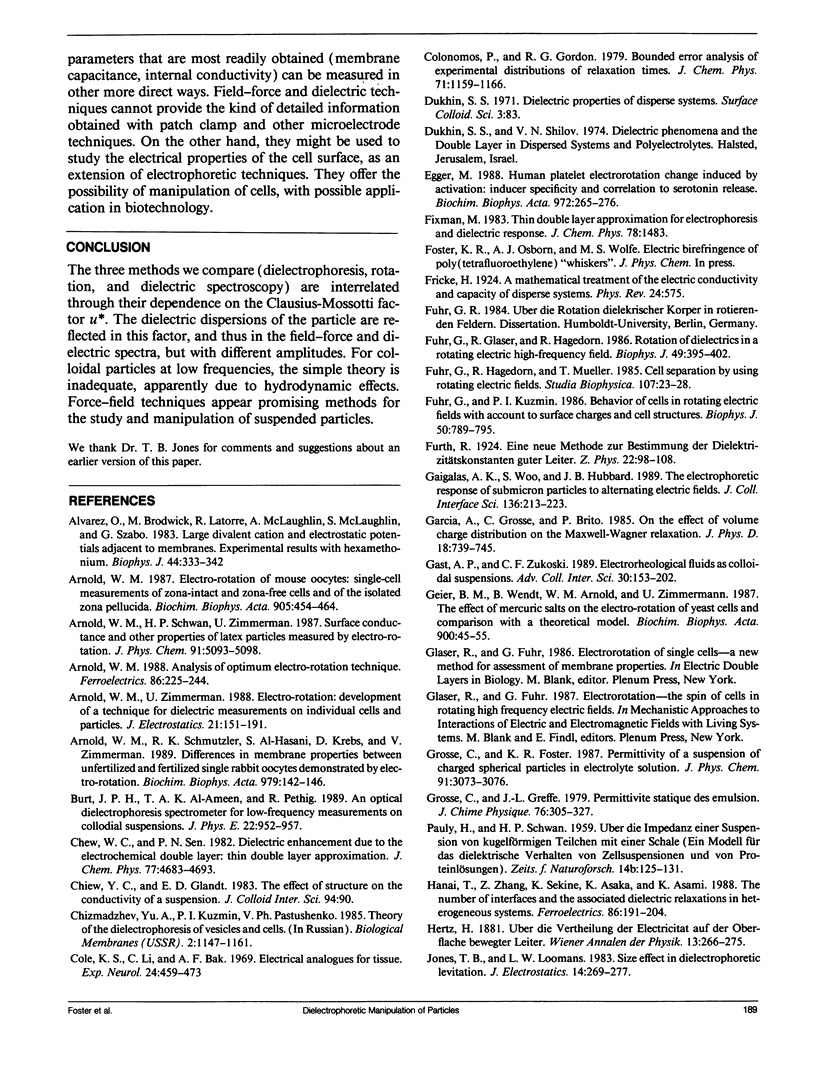
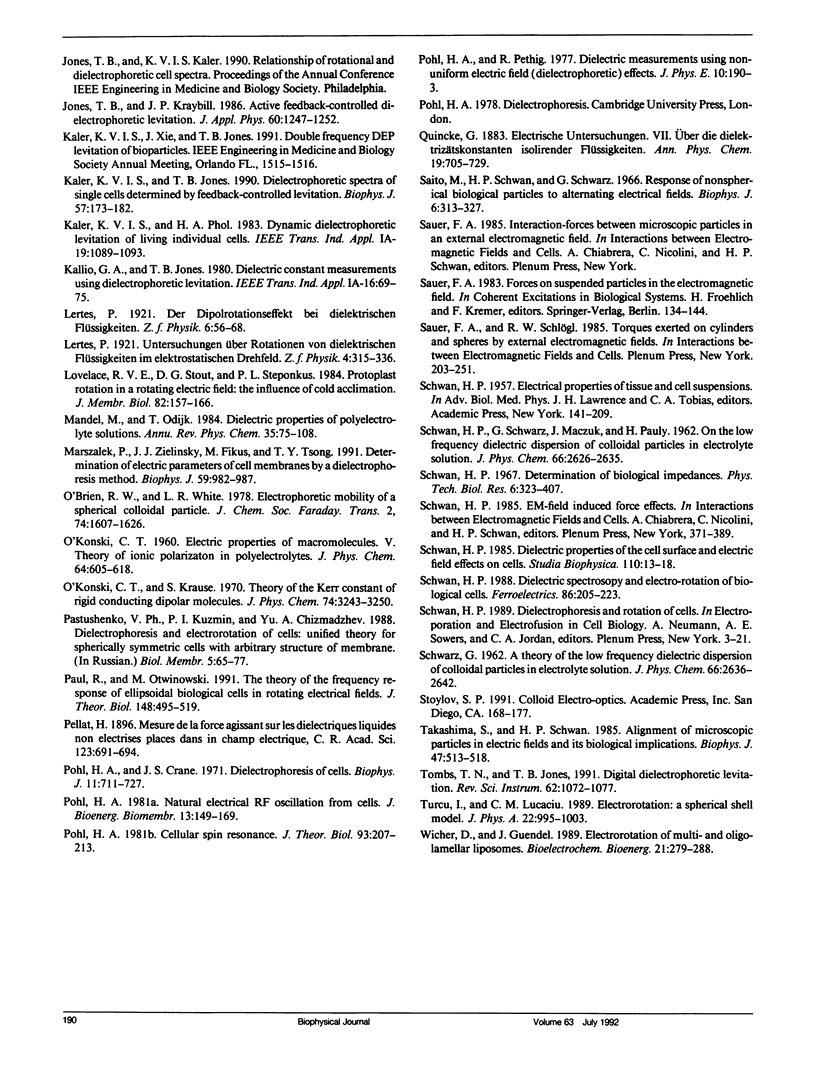
Selected References
These references are in PubMed. This may not be the complete list of references from this article.
- Alvarez O., Brodwick M., Latorre R., McLaughlin A., McLaughlin S., Szabo G. Large divalent cations and electrostatic potentials adjacent to membranes. Experimental results with hexamethonium. Biophys J. 1983 Dec;44(3):333–342. doi: 10.1016/S0006-3495(83)84307-0. [DOI] [PMC free article] [PubMed] [Google Scholar]
- Arnold W. M., Schmutzler R. K., Al-Hasani S., Krebs D., Zimmermann U. Differences in membrane properties between unfertilised and fertilised single rabbit oocytes demonstrated by electro-rotation. Comparison with cells from early embryos. Biochim Biophys Acta. 1989 Feb 13;979(1):142–146. doi: 10.1016/0005-2736(89)90535-x. [DOI] [PubMed] [Google Scholar]
- Arnold W. M., Schmutzler R. K., Schmutzler A. G., van der Ven H., Al-Hasani S., Krebs D., Zimmermann U. Electro-rotation of mouse oocytes: single-cell measurements of zona-intact and zona-free cells and of the isolated zona pellucida. Biochim Biophys Acta. 1987 Dec 11;905(2):454–464. doi: 10.1016/0005-2736(87)90475-5. [DOI] [PubMed] [Google Scholar]
- Cole K. S., Li C. L., Bak A. F. Electrical analogues for tissues. Exp Neurol. 1969 Jul;24(3):459–473. doi: 10.1016/0014-4886(69)90149-6. [DOI] [PubMed] [Google Scholar]
- Egger M., Donath E., Spangenberg P., Bimmler M., Glaser R., Till U. Human platelet electrorotation change induced by activation: inducer specificity and correlation to serotonin release. Biochim Biophys Acta. 1988 Dec 9;972(3):265–276. doi: 10.1016/0167-4889(88)90201-7. [DOI] [PubMed] [Google Scholar]
- Fuhr G., Glaser R., Hagedorn R. Rotation of dielectrics in a rotating electric high-frequency field. Model experiments and theoretical explanation of the rotation effect of living cells. Biophys J. 1986 Feb;49(2):395–402. doi: 10.1016/S0006-3495(86)83649-9. [DOI] [PMC free article] [PubMed] [Google Scholar]
- Fuhr G., Kuzmin P. I. Behavior of cells in rotating electric fields with account to surface charges and cell structures. Biophys J. 1986 Nov;50(5):789–795. doi: 10.1016/S0006-3495(86)83519-6. [DOI] [PMC free article] [PubMed] [Google Scholar]
- Geier B. M., Wendt B., Arnold W. M., Zimmermann U. The effect of mercuric salts on the electro-rotation of yeast cells and comparison with a theoretical model. Biochim Biophys Acta. 1987 Jun 12;900(1):45–55. doi: 10.1016/0005-2736(87)90276-8. [DOI] [PubMed] [Google Scholar]
- Kaler K. V., Jones T. B. Dielectrophoretic spectra of single cells determined by feedback-controlled levitation. Biophys J. 1990 Feb;57(2):173–182. doi: 10.1016/S0006-3495(90)82520-0. [DOI] [PMC free article] [PubMed] [Google Scholar]
- Marszalek P., Zielinsky J. J., Fikus M., Tsong T. Y. Determination of electric parameters of cell membranes by a dielectrophoresis method. Biophys J. 1991 May;59(5):982–987. doi: 10.1016/S0006-3495(91)82312-8. [DOI] [PMC free article] [PubMed] [Google Scholar]
- PAULY H., SCHWAN H. P. Uber die Impedanz einer Suspension von kugelförmigen Teilchen mit einer Schale; Ein Modell fur das dielektrische Verhalten von Zellsuspensionen und von Proteinlösungen. Z Naturforsch B. 1959 Feb;14B(2):125–131. [PubMed] [Google Scholar]
- Paul R., Otwinowski M. The theory of the frequency response of ellipsoidal biological cells in rotating electrical fields. J Theor Biol. 1991 Feb 21;148(4):495–519. doi: 10.1016/s0022-5193(05)80233-4. [DOI] [PubMed] [Google Scholar]
- Pohl H. A., Crane J. S. Dielectrophoresis of cells. Biophys J. 1971 Sep;11(9):711–727. doi: 10.1016/S0006-3495(71)86249-5. [DOI] [PMC free article] [PubMed] [Google Scholar]
- Pohl H. A. Natural electrical RF oscillation from cells. J Bioenerg Biomembr. 1981 Aug;13(3-4):149–169. doi: 10.1007/BF00763837. [DOI] [PubMed] [Google Scholar]
- SCHWAN H. P. Electrical properties of tissue and cell suspensions. Adv Biol Med Phys. 1957;5:147–209. doi: 10.1016/b978-1-4832-3111-2.50008-0. [DOI] [PubMed] [Google Scholar]
- Takashima S., Schwan H. P. Alignment of microscopic particles in electric fields and its biological implications. Biophys J. 1985 Apr;47(4):513–518. doi: 10.1016/S0006-3495(85)83945-X. [DOI] [PMC free article] [PubMed] [Google Scholar]


